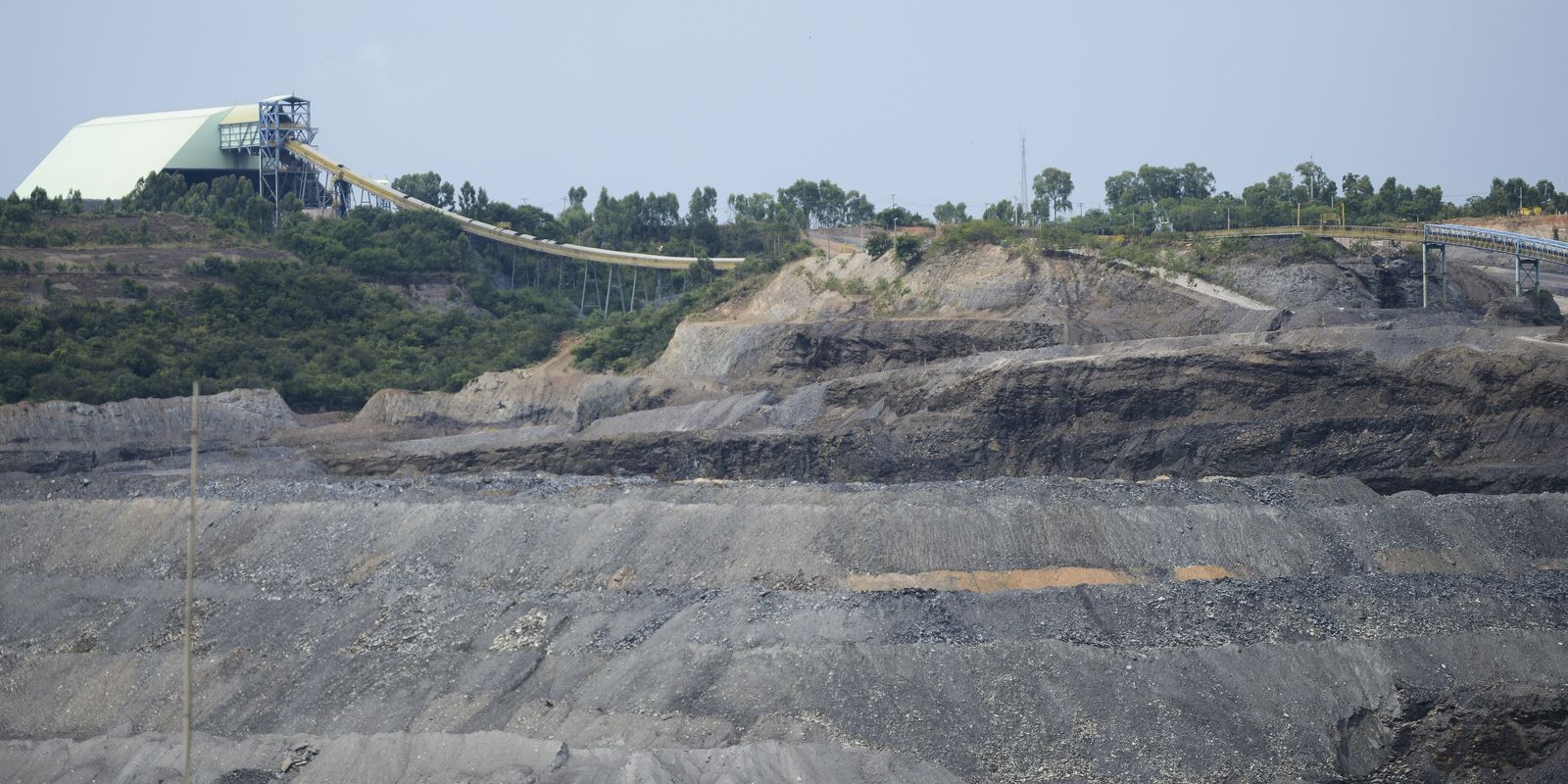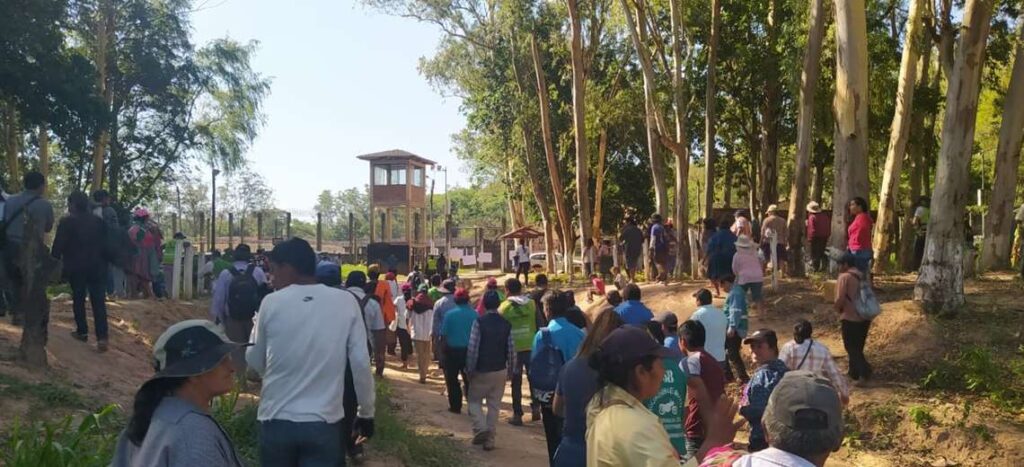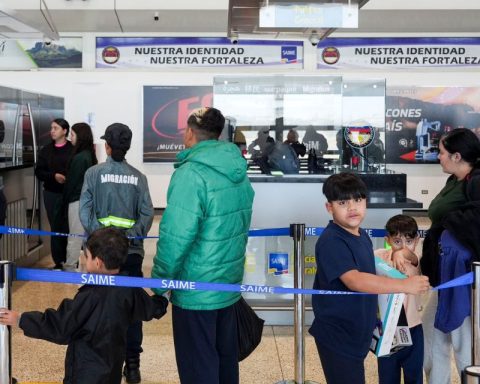The mineral industry in Brazil experienced a drop in performance in the first quarter of 2022. The data were released today (26) by the Brazilian Mining Institute (Ibram), an entity that represents the largest companies in the sector in activity in the country. In comparison with the same period last year, production, of 200 million tons, dropped 13%, and revenues, of R$ 56.2 billion, shrank 20%. Exports closed with a reduction of 22.8%.
According to Ibram, two factors had an important contribution to the new scenario, since the last quarterly balance sheets of the sector registered high production and billing. The first is related to China, the main buyer of ores from Brazil. In the first three months of the year, exports to the Asian country fell 31% compared to the same period last year. Compared to the last quarter of 2021, the drop is 29%.
“We had a reduction in the production of Chinese steelmakers related to the Winter Olympic Games. There was a determination by the Chinese government to improve the environmental conditions for the sporting event. There was also a greater control of prices on the part of China”, explained Raul Jungmann , CEO of Ibram.
The entity also draws attention to the isolation measures enacted in several cities in the Asian country to combat the covid-19 pandemic.
The second factor that strongly influenced the sector’s performance were the torrential rains that occurred in January in Minas Gerais. In some locations, more than 200 millimeters were recorded in just two days. Several operational units were shut down as a precaution or to carry out maintenance, impacting production. The Public Ministry of Minas Gerais (MPMG) recommended preventive intervention in 18 structures.
In Pará, production was also lower than expected. “We had problems associated with environmental licensing, especially in units located in northern Brazil,” said Jungmann.
Thus, the two main mining states – Minas Gerais and Pará – accounted for 77% of the country’s revenue. In the first three months of 2021, units from Minas Gerais and Pará accounted for 85% of production.
The drop in the sector’s performance in the quarter had an impact on the collection of public coffers. The data indicate that, in comparison with the first three months of 2021, mining companies paid 20% less in taxes and 25% less in royalties, which is charged through the Financial Compensation for the Exploration of Mineral Resources (CFEM).
BRL 1.5 billion in CFEM were collected, while between January and March 2021, BRL 2.1 billion were collected. Considering the sum of royalties and all taxes, the sector collected R$ 19.4 billion in the first quarter of this year and R$ 24.2 billion in the same period last year.
For Ibram, the quarterly performance is also associated with the cyclical nature of mining activity, which is affected by the seasonality of the weather. The expectation is that a slight recovery will be observed in the coming months, with the end of the rainy season.
The entity also points out that, despite the reduction in production and revenue, the mineral trade balance, which is the difference between exports and imports of ores, was US$ 6.2 billion.
“Even when there is a drop in results, ore exports generate foreign exchange that the country cannot give up,” said Jungmann. Iron ore, the flagship of Brazilian mineral production, accounted for 95% of ore exports in tons and 68% in dollars. In addition, it was responsible for 58% of the entire industry’s revenue, gold accounted for 11%, copper for 9% and other minerals for 22%.
The quarterly balance sheet also provides estimated investment data for a period of 5 years, between 2022 and 2026. The sector is expected to spend US$ 40.4 billion, of which US$ 36.2 billion in production and infrastructure and US$ $4.2 billion in socio-environmental projects, which involve preservation of protected areas, use of waste, dry processing and reduction of dependence on dams, reduction in water consumption, decarbonization plans, solar energy generation and energy self-sufficiency from renewable sources . According to Ibram, 46% of the planned investments are already underway.
new mandate
This is the first quarterly balance sheet presented by Jungmann. The former federal deputy and former defense minister during the Michel Temer government replaced Flávio Ottoni Penido, taking office as Ibram’s president-director on March 1. Also last month, a new president was elected to the entity’s Board of Directors: Wilson Brumer replaced Wilfred Bruijn, CEO of mining company Anglo American in Brazil. Penido and Brumer have held the posts since 2019.
Jungmann took advantage of the presentation of the quarterly data to enumerate some guidelines of his mandate. He defended the intensification of mineral research, criticized the increase in the tax burden of the sector and called for an end to the contingency of resources destined to the National Mining Agency (ANM), the body responsible for the regulation and inspection of the sector.
Another banner raised by Jungmann’s management is the diversification of mineral production, in order to reduce dependence on iron ore and explore the Brazilian potential of vanadium, nickel, lithium and other minerals. This is a measure that the new CEO also considers essential to reduce dependence on the Chinese market.
Jungmann said that sustainability and safety will be priority concerns of his management and announced that, in June, a mobile application will be launched in partnership with Companhia Energética de Minas Gerais (Cemig).
“[O aplicativo] It will allow any Brazilian to consult the situation of the dams. This is due to the entire Brazilian society, especially considering the tragic accidents we experienced in Mariana and Brumadinho”, he announced, recalling the major environmental disasters that occurred in 2015 and 2019.

















